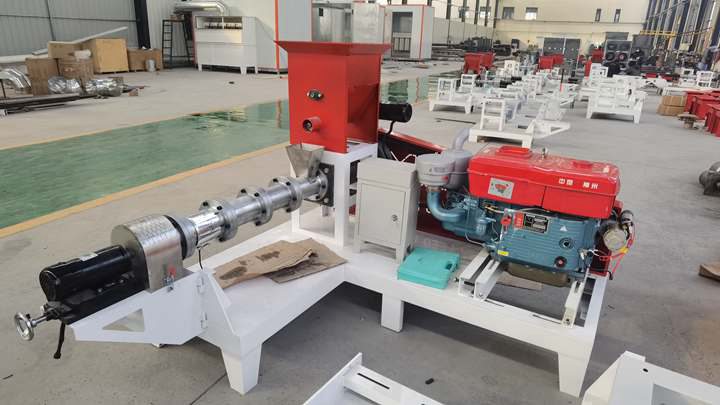.jpg)
May 25, 2019 · The Norwegian aquaculture industry has experienced rapid growth since its beginnings in the 1970s. In 2017, Norway produced over 52% of the world total production of Atlantic salmon. Today, fish farming is prolific along most of Norway's coastline, producing more than 1,2 million tonnes per year, 95% of which is exported.
.jpg)
Jan 29, 2018 · Salary expectations. Norway has no national minimum wage, but the seafood industry is one of the industries that has a collective agreement when it comes to wages. Until April 2018, the basic hourly wage is set at NOK 173.10 for unskilled labourers and production workers, with an additional NOK 10.5 for skilled workers.
.jpg)
Jun 14, 2022 · Employee number in the processing and preserving of fish and seafood industry in Norway. 10,370. Revenue of the processing and preserving of fish and seafood industry in Norway. 6.54 EUR. Market

Apr 30, 2020 · The main forms of seafood fraud include: labelling low-value species as more expensive ones. selling cheaply farmed fish as more expensive wild-caught fish. selling traditionally farm-raised fish as more valuable ecological or organic varieties. mislabelling the origin of seafood products.

Sometimes supermarkets have special offers for fresh or frosen salmon. Shrimps and fish for example can cost a lot more in south Norway than in the north. Fresh local shrimps are more expensive than frozen greenland prawns. Prices for shrimps can vary from NOK 75-150 in the places I usually shop. Salmon is often the least expensive fish to buy.
.jpg)
9. Norway. 1.30. 10. Japan. 1.10. Source: FAO. China continued to be the world’s largest seafood producing countries in 2019, with production estimated at 64.5 million metric tons (MMT) as a decline in wild catch was offset by growing aquaculture production. The decline in wild catch is expected to continue to challenge overall seafood
The price in Norwegian Krone is NOK 12.64 per kg. The average price for a tonne is US$ 1521.81 in Bergen and Oslo. Norway's import price for fish in 2019 was US$4.56 per kilogram. Click here for market analysis of Norway fish Sign up today for FREE to buy or sell Norway fish Help & Support Contact Us FAQs Payment Terms Shipping Refund Policy
.jpg)
Norwegian fish industry in such a way that production of fish and seafood products has increased, while at the same time the number of job vacancies in this sector has been reduced considerably. The Norwegian seafood production consists of many different branches and has a great variety both in technology, production methods and profitability.
.jpg)
Jul 30, 2017 · In 2016 they harvested a total of 1.4 million metric tons of salmonids. Not surprisingly, Norway and Chile dominate the overview presenting the world’s 20 largest salmon producers. Of the twenty largest, 11 companies have their head office in Norway, six in Chile, while the United Kingdom, the Faroe Islands and Canada have one each.
.jpg)
Sep 15, 2020 · In Norway, at any given time, there are about 400m farmed fish and only 500,000 wild fish. Tor Eirik Homme, director of feed and nutrition for a large Norwegian farming company, Grieg Seafood
.jpg)
Mar 15, 2022 · Global annual fish price index 2015-2017; U.S. aquaculture production 2001-2018; Fish farming production volume in Norway and Denmark 2012-2015; Major countries in production value of aquaculture 2017
'The correction is brutal': Norway salmon prices drop sharply; Alaska salmon LIVE UPDATES: Sockeye run and harvest break all-time records; Fortune International acquires US seafood wholesaler; Seafood giants Grieg, Mowi, Leroy and SalMar trial transporting salmon by ship in bid to cut emissions; UK sets date for 35% tariffs on Russian whitefish
.jpg)
In 2019 Norway exported 63,698 tonnes of fish. For the year 2019 alone, the interest in Norway fish (fish category) has increased, changing by 30.366 % compared to the year 2018. Between 2017 and 2019, fish's exports increased by 8.26 percent netting Norway US$96.94m for the year 2019. Norway's fish exports are categorised as:
.jpg)
May 08, 2012 · The price of food hit an all-time high in February 2011, and the Food and Agriculture Organization (FAO) of the United Nations’ food price index is currently equal to two and a half its level in 2000 [3]. Some speculate that the current food crisis might have led to the 2011 uprisings in the Middle East and North Africa, as the price of food
After a slight decline in 2019, world trade of fish for human consumption is projected to increase once again, at a rate of 1.1% p.a. over the coming decade and by a total of 4 Mt (or 9%) by 2029. This rate of increase is lower than that observed in the past decade (1.4% p.a.), reflecting the slowdown in production growth.